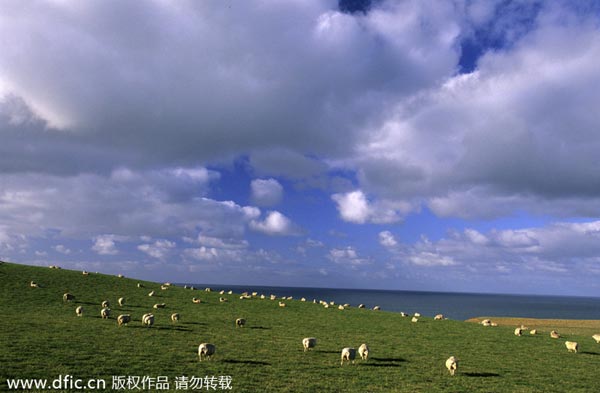|
 |
|
Sheep on lush paddlock in New Zealand.[Photo/icpress.cn] |
Research by Lincoln University found 58 percent of Chinese and 55 percent of Indian respondents rated environmental quality as important when buying food, compared with just 29 percent in New Zealand's traditional export market of Britain.
They also found 42 percent of Chinese and 50 percent of Indians rated animal welfare as very important compared with 34 percent of British respondents.
"As income grows, consumer behavior changes. Product attributes other than price start to play a greater role in consumer decision- making," Professor of Trade and Environmental Economics Caroline Saunders said in a statement.
Less surprisingly, the research found that 75 percent of Chinese and 65 percent of Indian respondents rated food safety certification as very important among a range of New Zealand product attributes, compared with just 41 percent of British respondents.
It also showed Chinese consumers were willing to pay 74 percent more than the normal price for dairy products with food safety certification, while Indian consumers were willing to spend up to 77 percent more for lamb products with food safety certification.
The results strongly suggested that New Zealand producers should give serious consideration to certifying their products, said Saunders.
"With just food safety certification alone, the potential increase in New Zealand producer returns from dairy and sheep meat exports to China, India and the UK is projected at $247 million to 2020. The most significant increase would likely be with whole milk powder, accounting for some 139 million U.S. dollars," she said.
When considering food safety, animal welfare, and biodiversity enhancement certifications combined, sheep meat and dairy exports to the three countries in question were projected to increase New Zealand producer returns by more than $405 million to 2020.
China and India were two rapidly growing export markets on which New Zealand was becoming increasingly reliant, with agricultural exports to China more than tripling from 2008 to 2012 and dairy exports seeing a five-fold increase.
Lamb imports soar as former favorite cuts get the chop from shoppers
